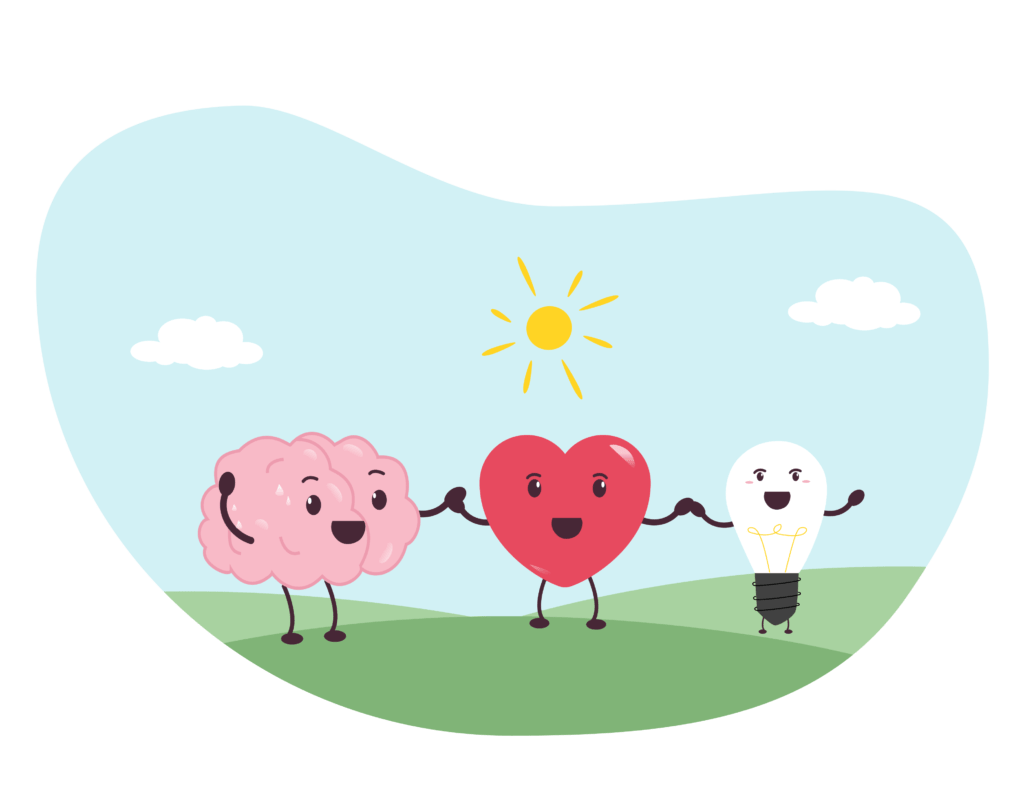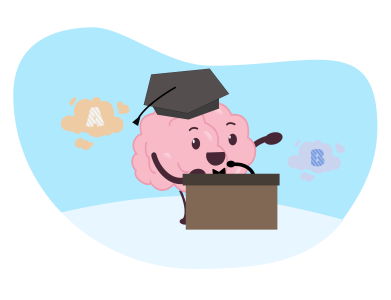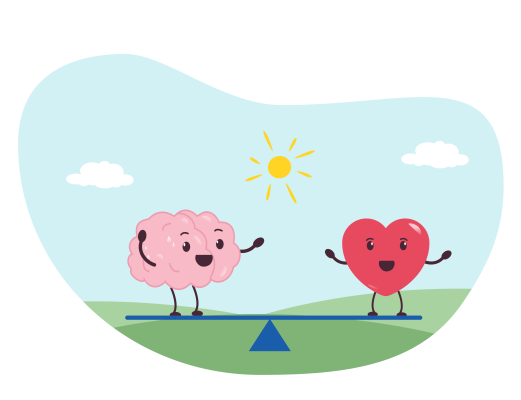In this article, we’ll talk about emotional intelligence and how parents can help their children become emotionally intelligent!
Consider these scenarios: Let’s say Lucas has trouble with his math homework. Instead of losing it and yelling at his mother, he goes to her for assistance. Or this one: Lucas’s friend must cancel their plans because he or she has received bad news. Since he can relate to his friend’s feelings, Lucas doesn’t pressure him to change his mind and instead makes other plans.
Perhaps you don’t see the big deal in these answers. However, these traits are indicative of what is commonly referred to as “emotional intelligence” (EI). Typical IQ tests fail to capture this type of intelligence. But it’s essential for helping us overcome obstacles and act appropriately in a variety of settings. It also facilitates the development of meaningful relationships with those in our close surroundings.
Children who have difficulties learning or concentrating can greatly benefit from developing their emotional intelligence. However, some children may find it more challenging to acquire due to differences in their ways of learning and thinking. Find out more about EQ and the ways you can help your child develop this important skill.
What is Emotional Intelligence?
Emotional intelligence is the ability to understand and control your own feelings and the feelings of others. Emotional intelligence comes from being in touch with, processing, and acting on your feelings.
Imagine the difficulties Lucas might encounter on a daily basis. He might have trouble with things that others find simple. Even if he puts in a lot of effort in the classroom, he may still perform poorly. He may be too ashamed to ask for assistance because of his difficulties with learning.
Emotional Intelligence plays a significant role in determining how we react to adversity. If Samuel has difficulties with learning and thinking, emotional intelligence can guide him in the right direction, just like a GPS. As a result, he is better able to assess challenges, gain perspective, and develop solutions.
With high emotional intelligence, here’s how that could play out when he’s having trouble with his math homework:
- He is becoming aware of his growing frustration.
- He thinks quickly about the consequences of either shouting or throwing his book.
- He thinks of a better way to respond; he decides to share his emotions with her.
- Despite his disappointment, he still wants to give it another shot because of the benefits he’ll reap in the end.
- When he needs help, he goes to his mother.
- His mother may be overly insistent at times, but he knows it’s only because she genuinely wants what’s best for him.
- He wants to do it again, this time on his own, and claims he needs to take things more slowly.
- The following day, he waits until after class to tell his teacher he didn’t quite get it.
A different result is likely to occur if one lacks emotional intelligence. The possible outcomes are as follows:
- When he is unable to solve a problem, he throws down his pencil in anger.
- When his mother comes in to help, he gets angry because he believes she is only bothering him.
- He storms out of the room and never returns. There’s no point to his eyes.
- He complains to the kid next to him in math class the next day that the homework was pointless.
- When the teacher asks for the assignment back, he claims he didn’t finish it. He doesn’t come out to her after class to admit that he is struggling and ask for assistance.
Why Do Some Children Struggle with Emotional Intelligence?
Emotional intelligence is not typically a problem for children who have learning or cognitive differences. There are those with exceptionally high Emotional Intelligence. However, difficulties with this Intelligence can sometimes be an indicator that a child is learning or thinking differently.
Children with ADHD may be unable to read social cues because they are not able to pay attention to them as intently as typically developing children. It’s possible that children with auditory processing disorder will misinterpret what they hear. Some children with learning disabilities, especially those that are nonverbal, may have trouble understanding social cues at all.
On the other hand, high EQ is not uncommon in those who are dyslexic. Some studies have suggested that this is because these people have a greater capacity for “big picture” thinking.
Advice for Parents on How to Support Their Child
The good news is that with your child’s support and practice, emotional intelligence can be developed over time. Because of their unique ways of learning and thinking, some children may struggle in this area. They might get there eventually, but it might take them longer.
Many public school districts offer Social and Emotional Learning (SEL) programs to help students understand their feelings and learn how to deal with them in a healthy way.
There are activities you can engage in while at home:
Talk about Challenges
Discuss with children their emotions when they are having trouble. Labeling negative emotions like sadness, anger, and overwhelm is important. Inquire further as to the source of the emotion they just revealed.
Work on Strategies
Consider what the kids may have done differently to achieve a different result. Part of emotional intelligence is learning to regulate your feelings so you can focus on finding a solution.
Do good deeds for other people
Involve the young ones in charitable work as a means of teaching them empathy. You can join up to help out in some way, or you can simply bring them along when you deliver food to a sick neighbor.
Takeaways
In a wide variety of contexts, emotional intelligence has proven to be useful. Learn how fostering a positive sense of self-esteem and positive social skills can help you give your child a leg up in life.
Also, some children who learn and think differently can have trouble with emotional intelligence.
Visit GRIP Learning to help you understand your children’s minds and learning behaviors much better.







